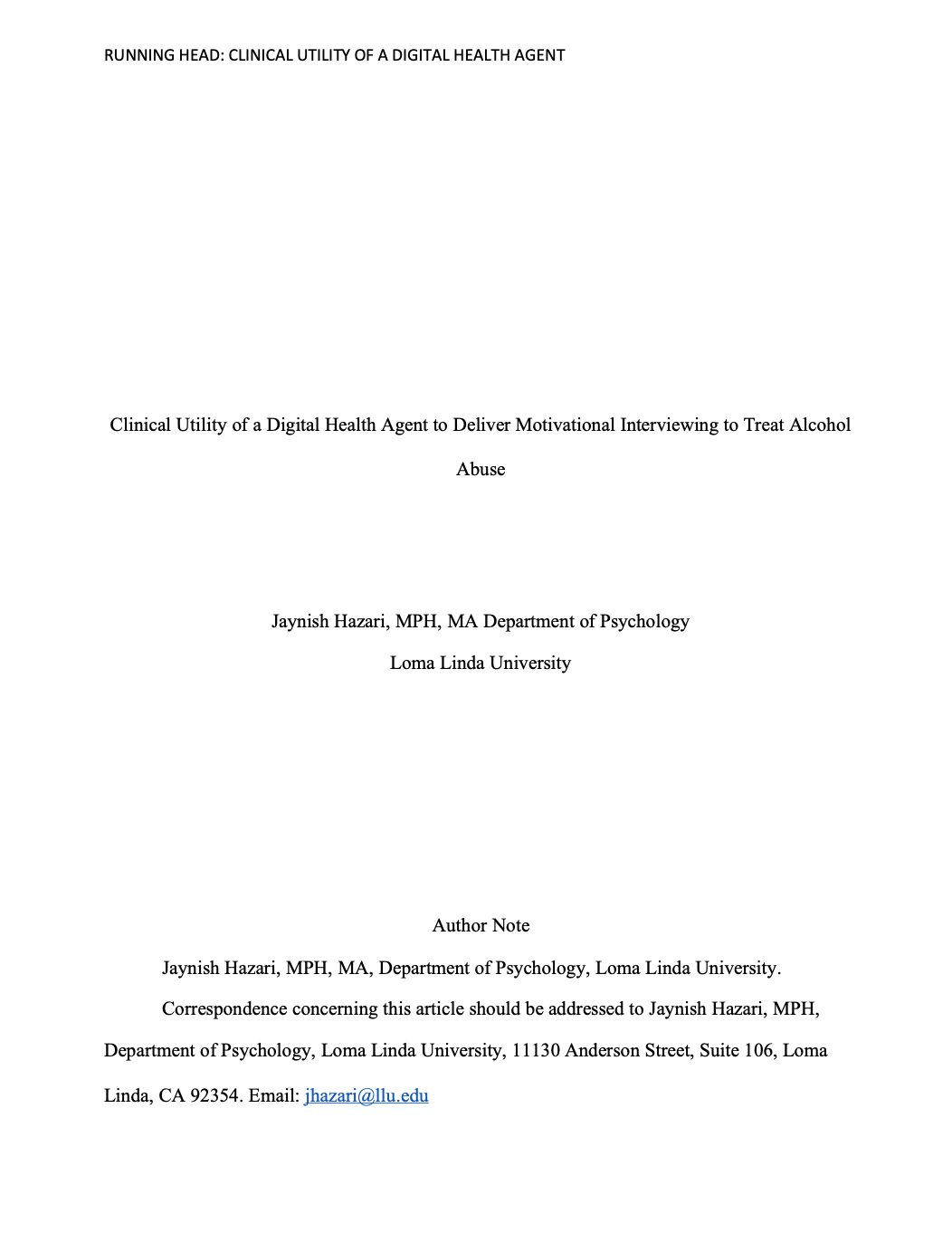Clinical Utility of a Digital Health Agent to Deliver Motivational Interviewing to Treat Alcohol Abuse

Abstract
Web-based and online interventions that target preventable health behaviors and are based on evidence-based therapies such as Motivational Interviewing (MI) are more cost-effective, more accessible, and less stigmatizing than traditional therapy (Blandford et al., 2018). This study examined doctoral-level clinical psychology trainees’ understanding and perception of the potential clinical utility of an online virtual health agent, called "eEVA" (empathic embodied virtual agent), that delivered a web-based MI intervention for alcohol abuse. MI-based interventions help individuals find intrinsic motivation to make healthy lifestyle changes (Miller & Rollnick, 2002). The current study qualitatively examined clinical psychology trainees’ impressions and satisfaction of eEVA, and used quantitative data to test the perceived clinical utility of this technology for patients who may be at risk for alcohol problems, as literature indicates that user satisfaction is a strong predictor of patients meeting desired clinical goals and outcomes (Provoost et. al., 2017). This study showed that clinical psychology trainees found the technology to be significant in its clinical utility. Specifically, 59% of clinical psychology trainees who interacted with eEVA rated the overall clinical utility of the technology positively. As 60% of the study sample enjoyed interacting with the technology, this study shows that many new and early career psychologists will find significance and meaningful application in utilizing digital health interventions that are similar to eEVA.



